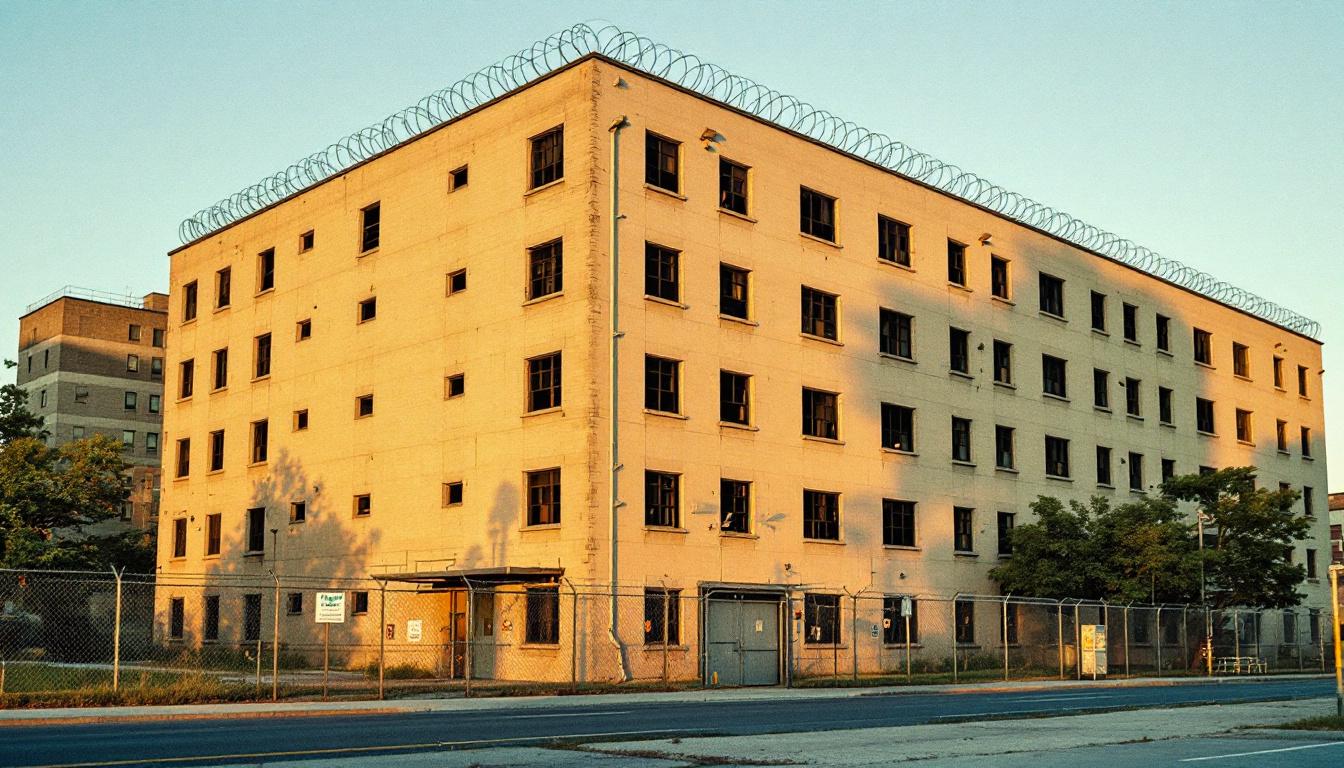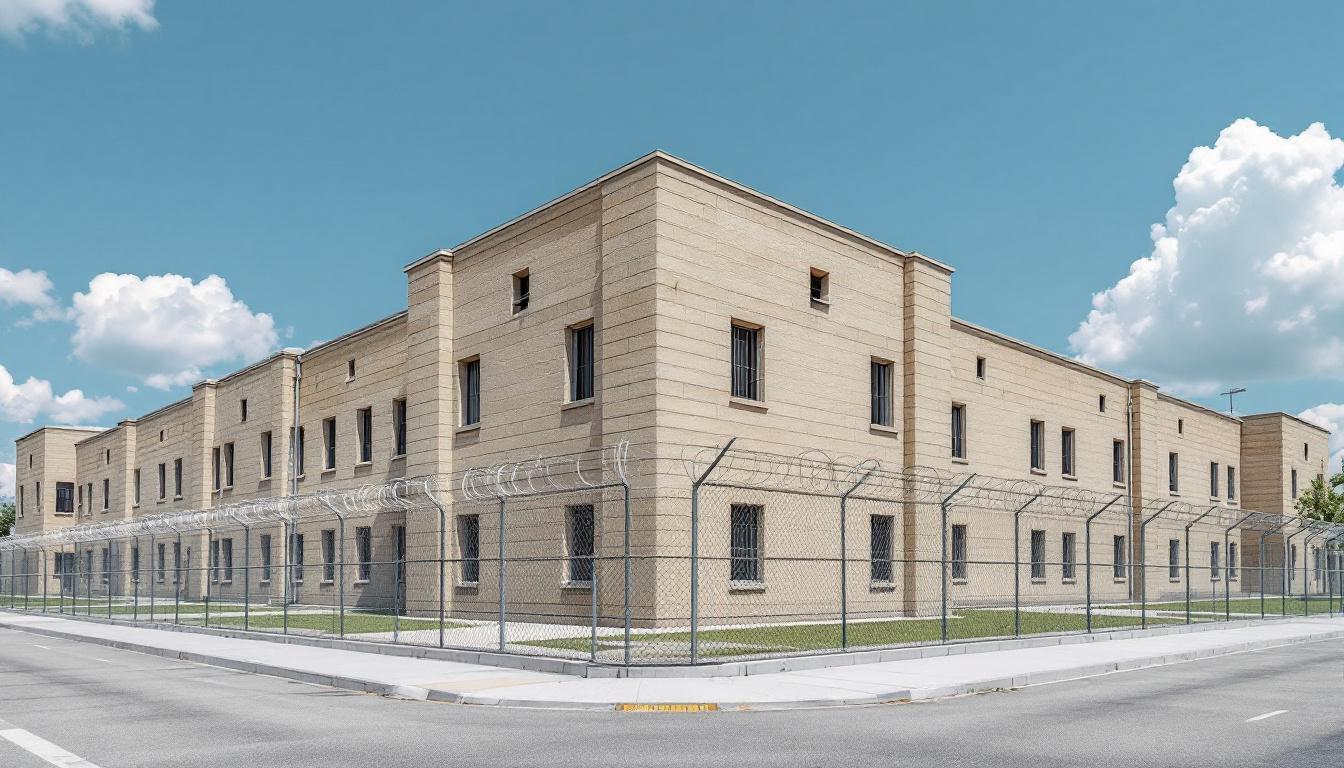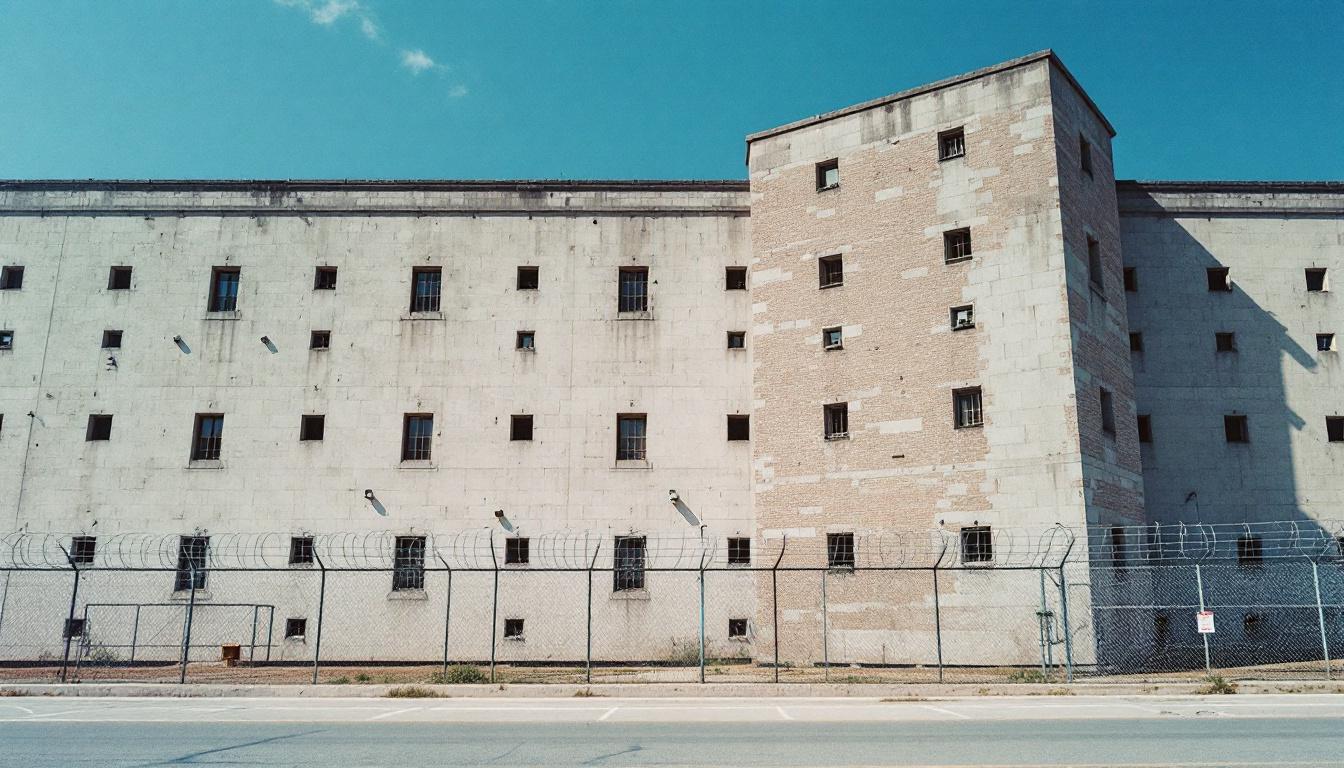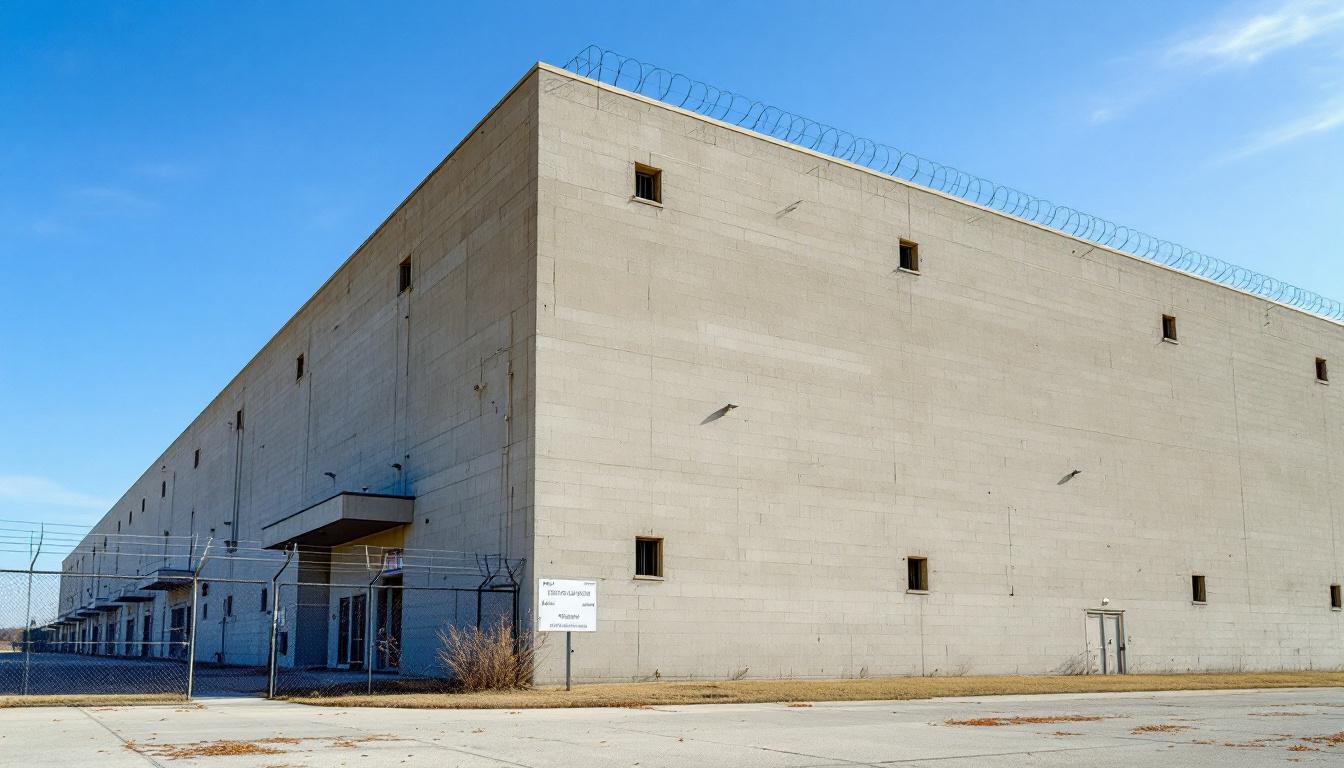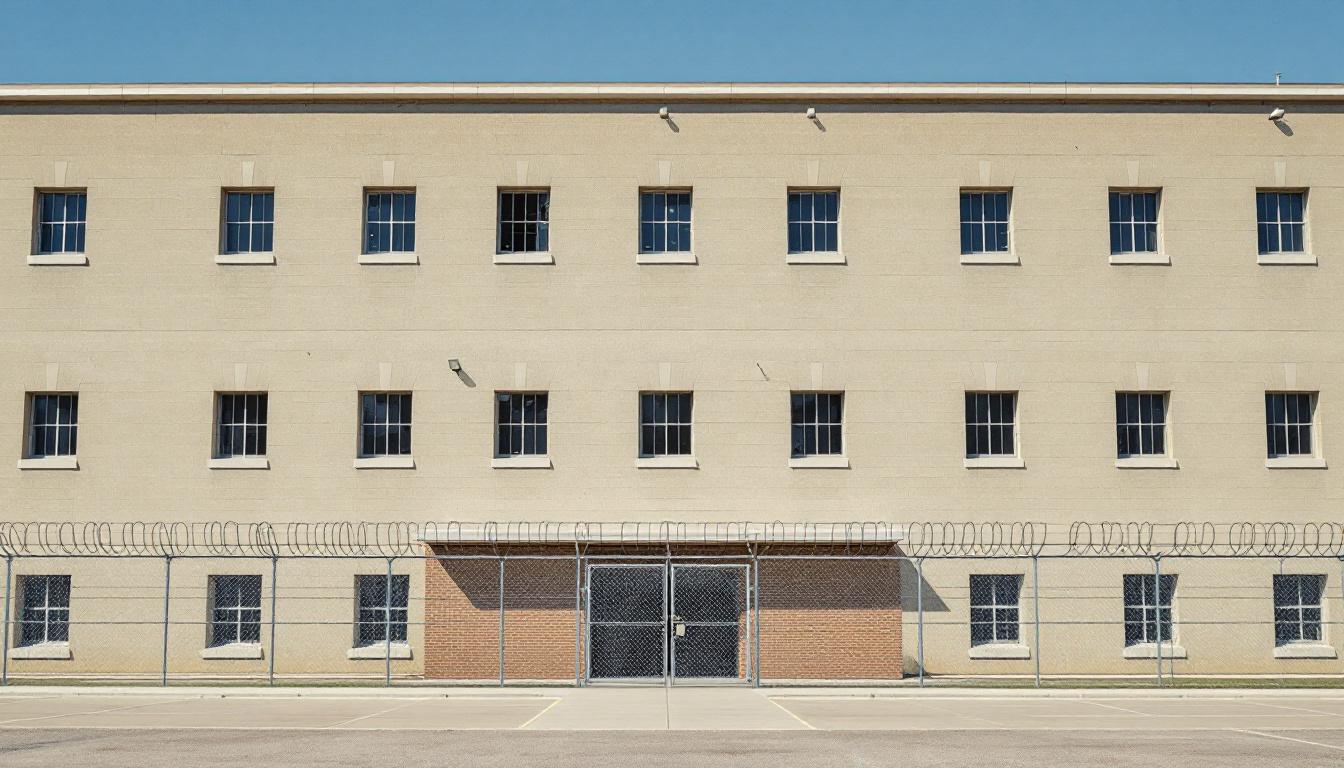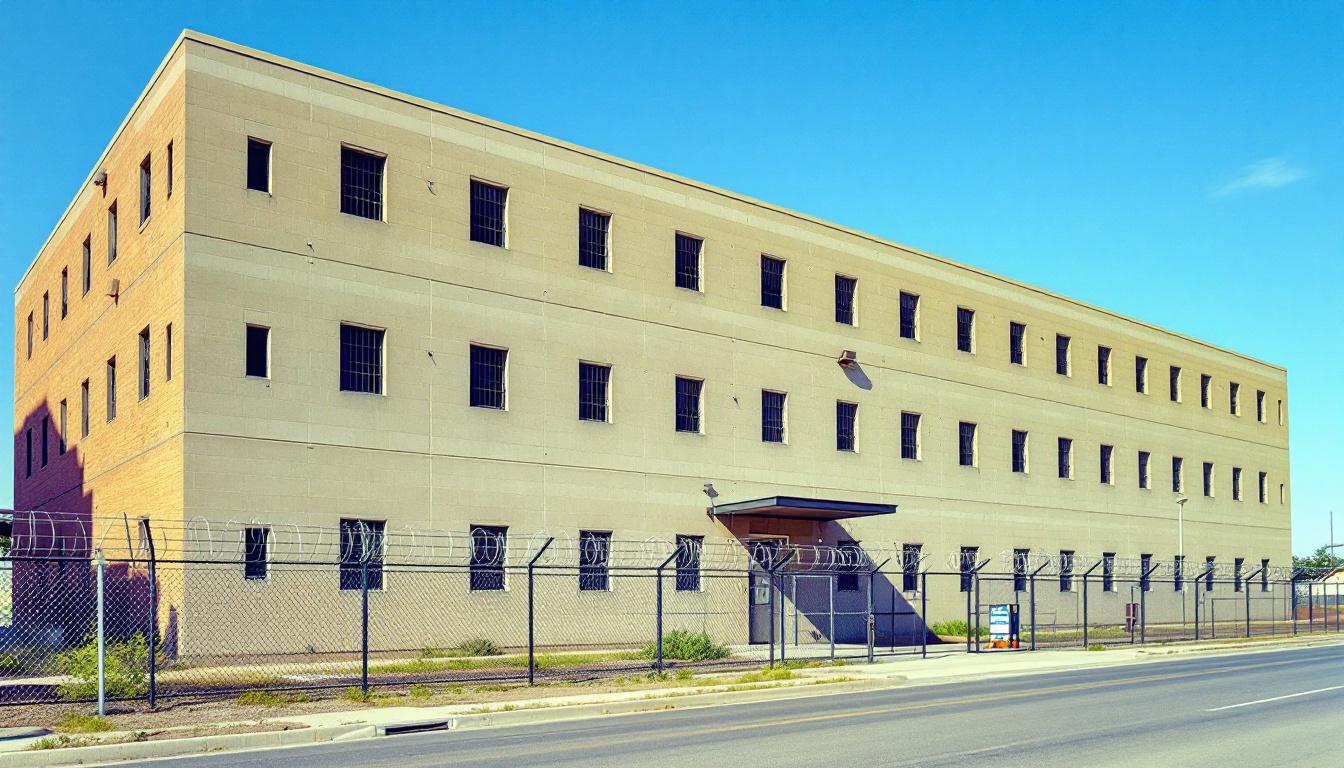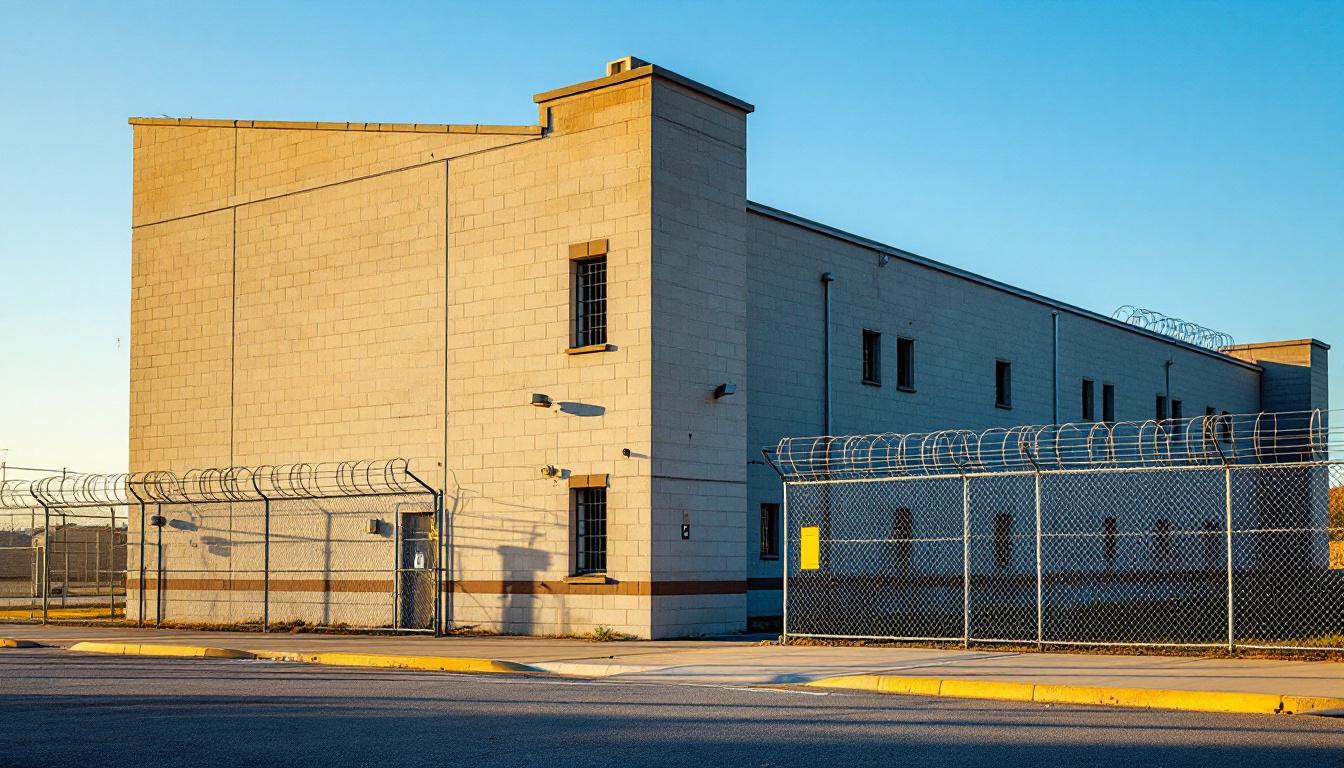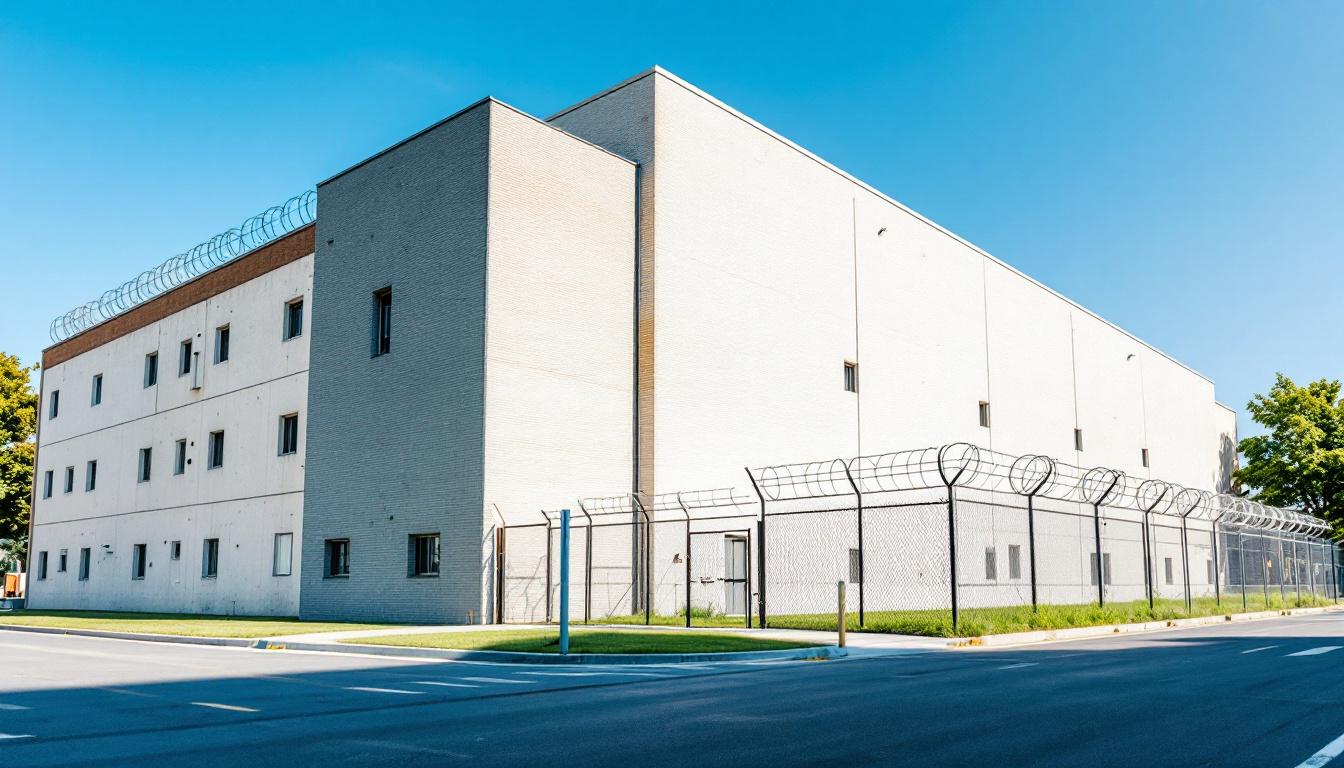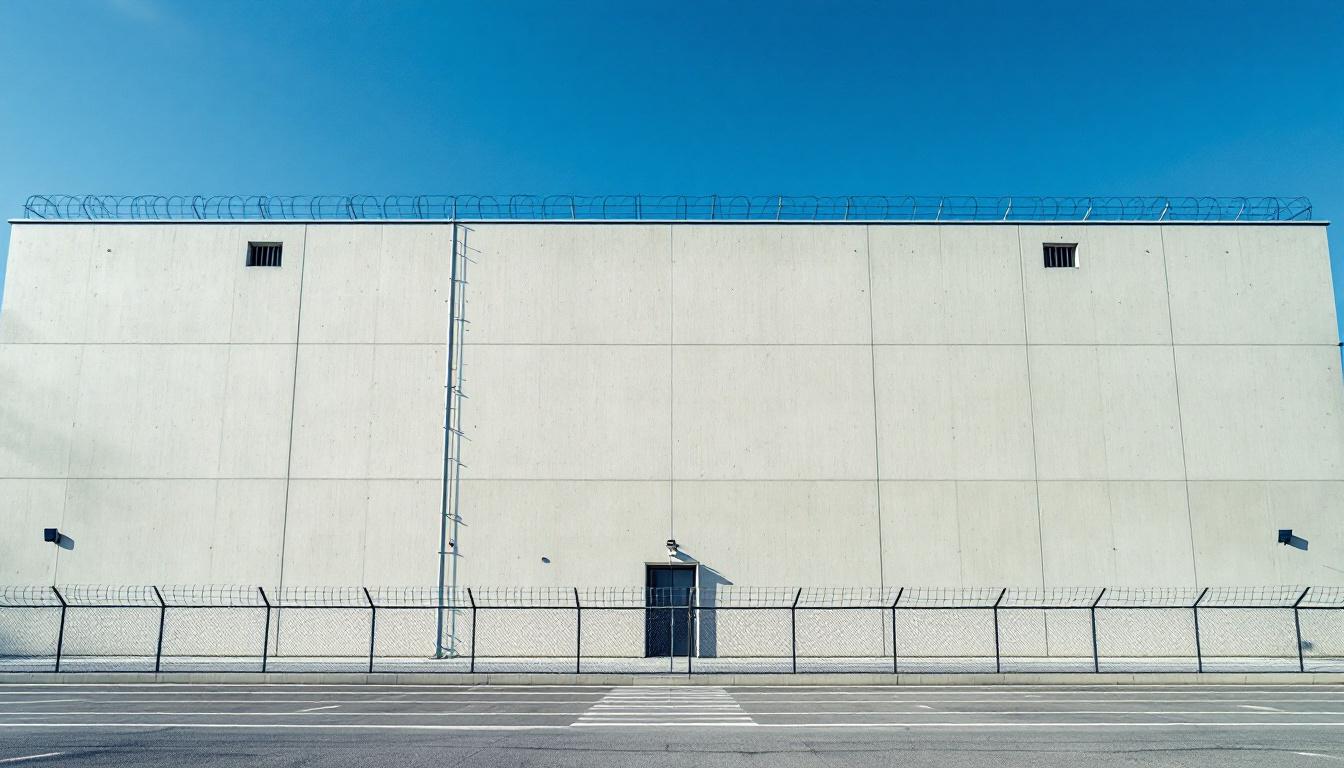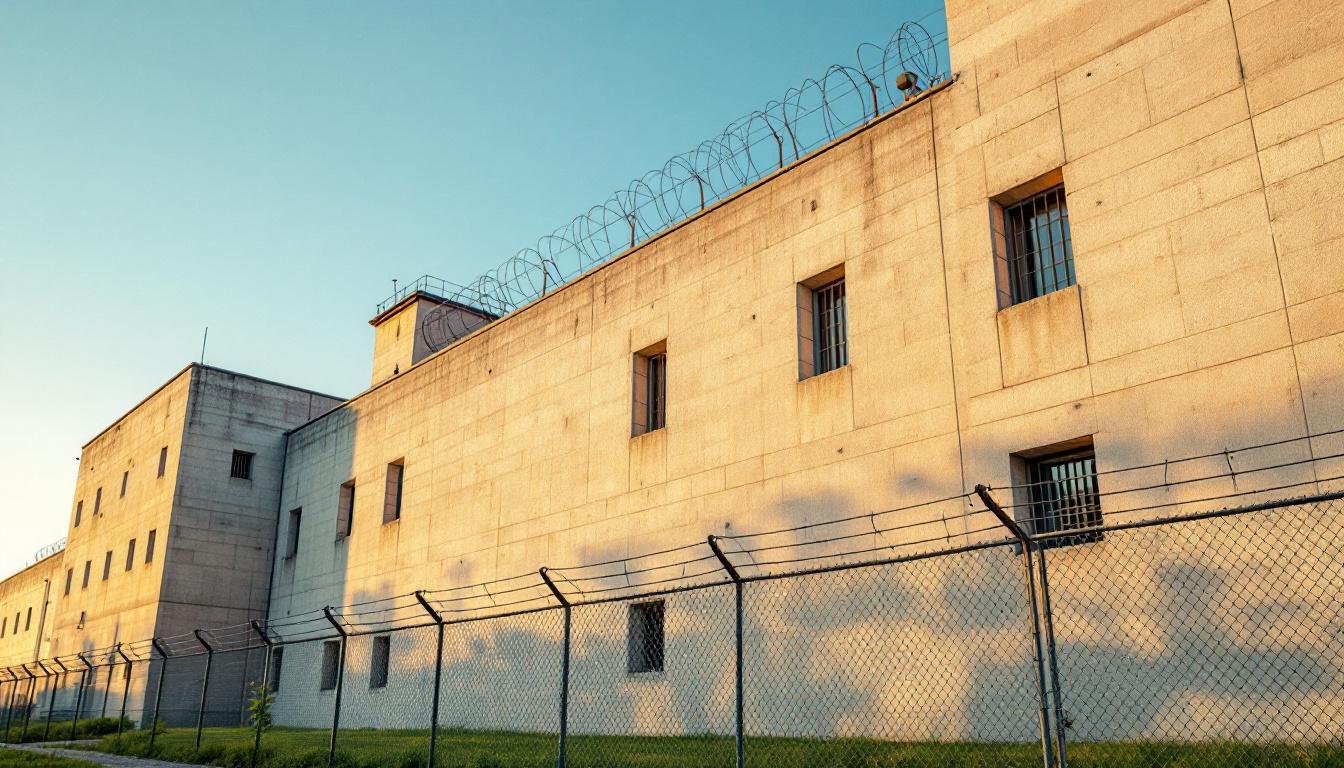
Quick Navigation
How to contact an inmate at Kay County Detention Center
This comprehensive guide will walk you through how to connect with an inmate at Kay County Detention Center. Follow the steps below to find an inmate and send letters and photos:
- Search for the inmate using our search tool below
- Create your account or log in to Penmate
- Write your message (up to 6,000 characters)
- Send instantly - inmates receive printed copies daily
Find an Inmate
Search for an inmate to start communicating today
Tip: You can search by first name, last name, or inmate ID number
To contact a person at Kay County Detention Center start by searching for the person on the official facility website. Perform a search by following these steps:
- Step 1: Enter their first name and last name into the search form and click "Search"
- Step 2: Locate their inmate record
- Step 3: Write down their Inmate ID and any housing information provided
Important! Be sure to enter the person's full name. Nicknames should not be used.
How to Send Messages to Inmates

You can use your phone or computer to send emails, letters, and photos to an inmate. Messages are sent electronically to inmate tablets or kiosks at the facility. If you would like to send a message, start by searching for an inmate at Kay County Detention Center.
Sending Photos and Postcards

A great way to send love and support to a loved one at Kay County Detention Center is to send photos and postcards. It only takes a few minutes to send photos from your phone and it makes a huge difference. You can also mail postcards with words of support and inspiration, or design your own postcard for special moments like birthdays and holidays.
Important! Be sure not to send any explicit photos or they may not be approved by the facility. You can also use a photo printing app like Penmate to make sure your photos are printed at the correct size (4x6 or 3x5) and are mailed according to the rules and regulations of Kay County Detention Center.
Frequently asked questions about Kay County Detention Center
-
How long does it take to deliver a message?
If you're sending an email message your letter is usually delivered within 24-48 hours. For messages sent via mail you should expect delivery within 3-7 days. All messages will need be approved by Kay County Detention Center.
-
How much does it cost to send a message to Kay County Detention Center?
You can send a message free using your phone or mail a message via USPS for the price of a $0.60 stamp and envelope. You can also purchase credits or e-stamps from services starting at $1.99.
-
What services can I use to contact an inmate at Kay County Detention Center?
Penmate
You can use Penmate to send letters and photos to an inmate from your phone. It's an easy way to stay in touch during your loved one's incarceration. Use the inmate locator to find an inmate's location and contact information, then you can send messages within a few minutes.
Securus messaging
Securus may be another option for communicating with an inmate at Kay County Detention Center. You can create a friends and family account and purchase credits to send messages. All messages will be reviewed and must be approved by the facility.
JPay
Some county jails and state prisons may support sending messages with JPay. You must register an account with the system, find your loved one, and purchase stamps to send messages. For some locations you can also attach photos.
Smart Jail Mail
You may also check if Smart Jail Mail is available at Kay County Detention Center. Smart Jail Mail is operated by Smart Communications and has contracted with some state and county jails. After purchasing credits, your messages and photos are sent to the facility, printed out, and then handed out to your loved one.
-
What is the mailing address of Kay County Detention Center?
Mailing address:
Kay County Detention Center
1101 W Dry Rd
Newkirk, OK 74647
Phone: (580) 362-3393Business hours:
- Monday: Closed
- Tuesday: 9:00 AM – 12:00 PM
- Wednesday: 9:00 AM – 3:00 PM
- Thursday: 9:00 AM – 3:00 PM
- Friday: Closed
- Saturday: 9:00 AM – 3:00 PM
- Sunday: Closed
-
What are the visiting hours at Kay County Detention Center?
Visiting hours at Kay County Detention Center vary by housing unit and security level. Generally, visits are scheduled on weekends and holidays, with some facilities offering weekday visits. Contact the facility directly at (580) 362-3393 or check their website for the current visiting schedule. Visits typically last 30-60 minutes and must be scheduled in advance.
-
What items are prohibited when sending mail to Kay County Detention Center?
Prohibited items typically include: cash, personal checks, stamps, stickers, glitter, glue, tape, staples, paperclips, polaroid photos, musical or blank greeting cards, hardcover books, magazines with staples, and any items containing metal or electronics. Only send letters on plain white paper with blue or black ink. Photos must be printed on regular photo paper (no Polaroids). Always check with Kay County Detention Center for their specific mail policies.
-
How do I send money to an inmate at Kay County Detention Center?
You can send money to an inmate at Kay County Detention Center through several methods: 1) Online using JPay, Access Corrections, or the facility's approved vendor, 2) Money orders mailed directly to the facility with the inmate's name and ID number, 3) Kiosks located in the facility lobby, or 4) Over the phone using a credit or debit card. Fees vary by method, typically ranging from $2.95 to $11.95 per transaction.
-
Can I schedule a video visit with an inmate at Kay County Detention Center?
Many facilities now offer video visitation as an alternative to in-person visits. At Kay County Detention Center, video visits may be available through services like Penmate, Securus Video Connect, GTL, or ICSolutions. Video visits typically cost $10-20 for 20-30 minutes and must be scheduled in advance. You'll need a computer or smartphone with a camera and reliable internet connection. Contact the facility for their specific video visitation policies and approved vendors.
-
What identification do I need to visit an inmate at Kay County Detention Center?
All visitors must present valid government-issued photo identification such as a driver's license, state ID, passport, or military ID. Minors must be accompanied by a parent or legal guardian who can provide the minor's birth certificate. Some facilities require visitors to be on the inmate's approved visitation list, which may require a background check. Contact Kay County Detention Center for specific ID requirements and visitor approval procedures.
-
How can I find out an inmate's release date?
To find an inmate's release date at Kay County Detention Center, you can: 1) Use the online inmate search tool if available, 2) Call the facility's records department, 3) Contact the inmate's case manager or counselor, or 4) Have the inmate provide this information during a call or visit. For privacy reasons, some facilities only release this information to immediate family members.
Facility Overview
Contact Information
Kay County Detention Center1101 W Dry Rd
Newkirk, OK 74647
Phone: (580) 362-3393
Official Website
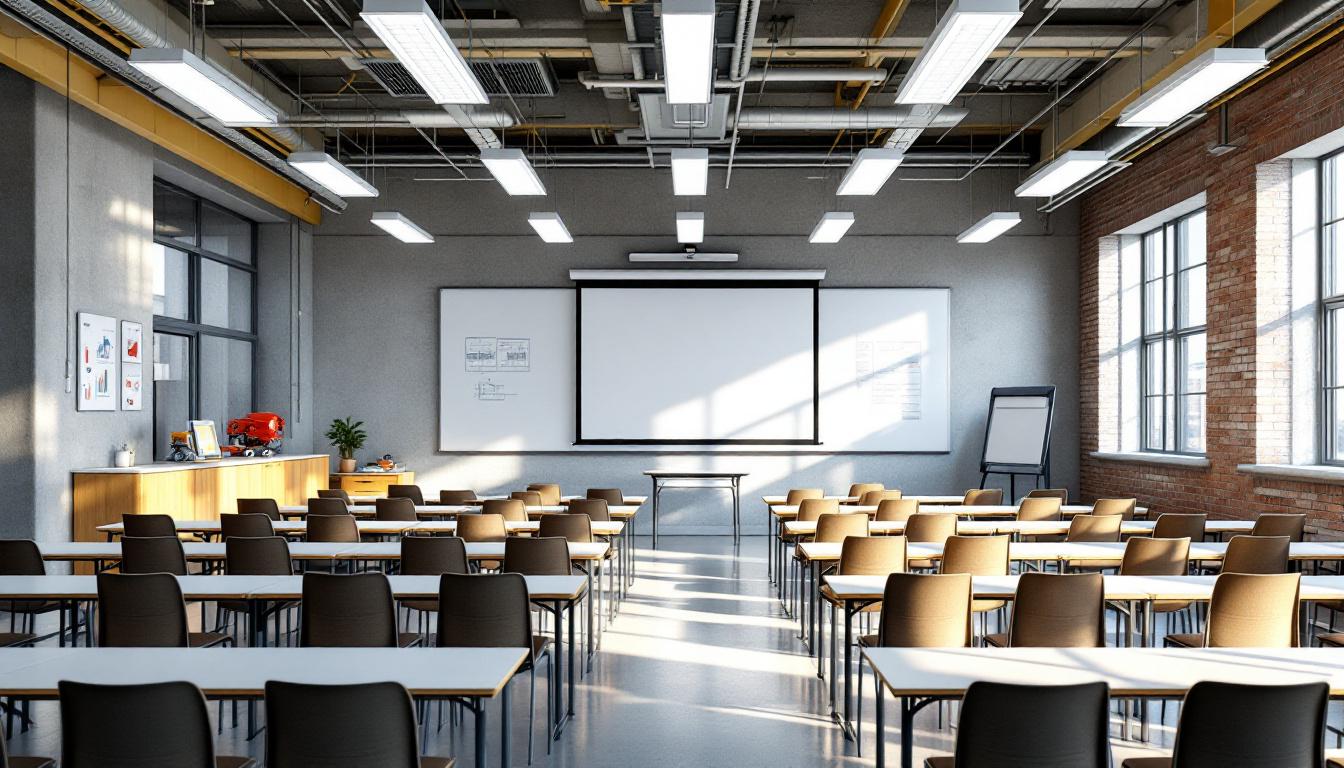
About Kay County Detention Center
Serving as a vital component within Oklahoma’s correctional framework, the mission of maintaining secure custody while preparing individuals for successful community reintegration drives operations at the Kay County Detention Center, OK. Located in Newkirk, this facility operates within the broader context of the state’s commitment to both public safety and offender rehabilitation, positioning itself as an integral part of Kay County’s criminal justice system.
The OK correctional facility typically emphasizes structured programming designed to address the diverse needs of those in custody. Educational opportunities, substance abuse counseling, and vocational skill development programs may be available to support inmates during their incarceration period. Mental health services and basic medical care generally form part of the comprehensive approach to maintaining both physical and psychological well-being within the detention environment. These those incarcerated services often align with Oklahoma’s statewide correctional objectives, focusing on reducing recidivism through evidence-based interventions.
Community connections remain essential to the facility’s operational philosophy, as staff typically work to maintain appropriate communication channels between inmates and their families. The detention center generally coordinates with local courts, probation services, and community organizations to ensure smooth transitions during legal proceedings and potential release processes. Through its location in Newkirk, the facility serves not dedicated Kay County residents but may also house individuals from surrounding areas, contributing to the regional correctional capacity while maintaining focus on rehabilitation and public safety priorities that characterize Oklahoma’s evolving approach to corrections.
Programs & Services
Personal development opportunities flourish within the structured environment at Kay County Detention Center, where those incarcerated can access various offerings designed to foster meaningful change and prepare them for successful reintegration. The facility typically emphasizes security and safety while creating pathways for individuals to develop new skills, strengthen their educational foundation, and address underlying issues that may have contributed to their circumstances. This comprehensive approach recognizes that meaningful rehabilitation often requires addressing multiple aspects of an individual’s life through structured programming and consistent support.
Educational offerings may furnish those incarcerated with opportunities to advance their academic credentials and strengthen fundamental skills. The facility often includes literacy programs that help participants improve reading and writing abilities, which serve as building blocks for further learning and employment prospects. Education programs typically provide pathways for individuals to work toward completing their high school equivalency, while vocational training offerings focus on developing practical job skills in areas that align with local employment opportunities. These structured learning environments emphasize both personal achievement and practical preparation for life after release.
In addition to these academic and skill-building opportunities, the facility may offer therapeutic and support services designed to address personal challenges and promote positive behavioral changes. Cognitive behavioral therapy sessions typically help those incarcerated develop healthier thought patterns and coping strategies for managing stress and making better decisions. Faith-based programs often provide spiritual guidance and community support for participants seeking to strengthen their personal values and find meaning in their rehabilitation journey. These offerings work together within the facility’s secure framework to create multiple avenues for personal growth and positive transformation.
Daily Life & Visitation

Strong family bonds and community connections remain vital lifelines for those incarcerated at Kay County Detention Center, where maintaining relationships with loved ones helps provide stability during a challenging time. Today’s routine consistently begins with early morning wake-up calls, followed by structured meal times and various activities designed to furnish both structure and purpose. Those incarcerated typically navigate their days through a combination of housing unit responsibilities, recreational opportunities, and programming that may help them stay connected to their support systems.
Living accommodations generally feature dormitory-style or individual housing units, depending on classification levels and available space. Meals are typically served in common dining areas at scheduled times throughout the day, providing opportunities for social interaction among residents. In addition to this structured meal schedule, those incarcerated may access commissary services to purchase additional food items and personal necessities, often funded through accounts maintained by family members who wish to provide support.
Recreation and exercise opportunities usually include access to outdoor areas, television viewing, and various indoor activities that help maintain physical and mental well-being. Visitation policies generally allow family members and approved visitors to maintain regular contact, while phone privileges and correspondence typically provide additional communication options. Despite this structured environment, work assignments within the facility often furnish valuable skills and daily purpose, ranging from kitchen duties to maintenance tasks. Programming schedules may include educational opportunities, counseling services, and other activities designed to support personal development while helping those incarcerated maintain meaningful connections with their communities outside the facility walls.
Ready to Connect?
Start communicating with your loved one today
Search for an Inmate
